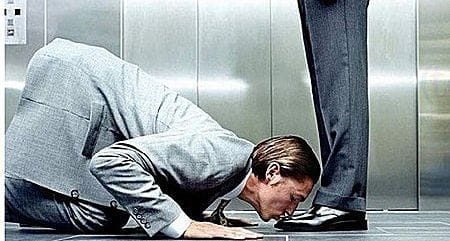Mobbing, disqualification and other damages to the person: how the worker can defend himself
Il Fatto Quotidiano – 23 maggio 2018
Dequalification, mobbing, violation of health protection legislation: they are only the most frequent among the pathological events of the employment relationship that can generate to the employee who suffers them damages of various types, both of a financial nature, i.e. consisting of a loss or missed gain of an economic nature, and of a non-patrimonial.
This last category, according to the now over ten-year reconstruction of the Court of Cassation, includes all the prejudices to the legally protected rights and interests of the person that do not have economic significance: therefore there is damage to health or biological damage, consisting of a medically ascertainable injury to the psychophysical integrity, the so-called moral damage, consisting of the suffering and discomfort deriving from having suffered an illicit act that affects a constitutionally protected right, and the so-called 
When the worker intends to propose a cause for one of these problems it is therefore essential not only to verify if there has been one a breach of law or contract by the Company (otherwise it could not be called to answer for damages for an act legitimate in itself), but also to identify, clearly describe and also prove the type of damage suffered; this because for some time jurisprudence has held that the damage does not automatically result from the commission of an unlawful act by the employer, but must always be specifically alleged and proven by the worker.
As for the damage to professionalism resulting from demotion (which is patrimonial in nature because it consists in the loss of knowledge, experience or visibility that can be spent on the labor market), judges are therefore increasingly asked to explain whether and how the work previously performed required updating or constant practice to maintain and develop the acquired skills and competences, or if its loss has led to the loss of chances of career progression.
Prove then the non-pecuniary damage suffered seems even more complicated: if for biological damage, being clinically ascertainable, the tool available is clear and consists of the coroner's expertise, how to do for existential damage or even for moral damage, consisting of the feeling of suffering of the damaged?
Here too the jurisprudence requires that the appeal presented by the worker be described concretely how the suffering or worsening of the worker's quality of life manifested itself: the employee who complains of having had to give up activities outside work, of a family type, sports or otherwise relating to leisure time, following an accident or the state of prostration caused by bullying, he will have to describe the activities he had to give up and document them or prove them by calling to testify
Even the moral damage, i.e. the suffering in itself considered deriving, for example, from vexatious behavior (such as harassment) can be demonstrated where the worker or female worker concerned calls colleagues to testify to whom they have promptly confided their fears and discomfort, or produces the messages exchanged with colleagues or the employer by email or on messaging apps such as Whatsapp; the important thing is that a form of external communication be given to the suffering experienced. Also from this point of view, therefore, the importance of promptly reporting is confirmedvexatious, mobbing or harassing behaviour, also making use of the possibilities provided by new technologies.
It must also be said that the aforementioned jurisprudence in any case admits, in fact lightening the worker's burdens, that proof of the damage can also be provided through clues, presumptions or recourse to the notion of a well-known fact (i.e., pursuant to Article 115 of the Code of Civil Procedure, those notions of fact that fall within common experience): and thus, the longer and more serious a situation of disqualification has been, the more loss of professionalism can be presumed, and likewise the more serious a harassment, the more the Judge can be induced to recognizing the suffering that derives from it as part of common experience; however, it is important to remember how nothing should be taken for granted at the outset, and therefore how important it is to obtain evidence and documents as soon as possible that can attest to the type and extent of the damage suffered.
Lastly, it should only be remembered that damage to the dignity and quality of life of the employee can obviously also be caused by the most serious of the measures that can be adopted by the employer, i.e. dismissal: from this point of view, especially after the reform introduced by the Jobs Actthe related debate is current the adequacy of the compensation system foreseen for the case of unlawful dismissal, so much so that this is one of the aspects for which the legitimacy of the reform is now subjected to the scrutiny by the Constitutional Court.
Author: Davide Bonsognorio, member of Agi (Association of Italian labor lawyers). He practices the profession of lawyer on the side of workers and trade unions; he has collaborated with various specialized magazines in the sector. Lives and works in Milan.
